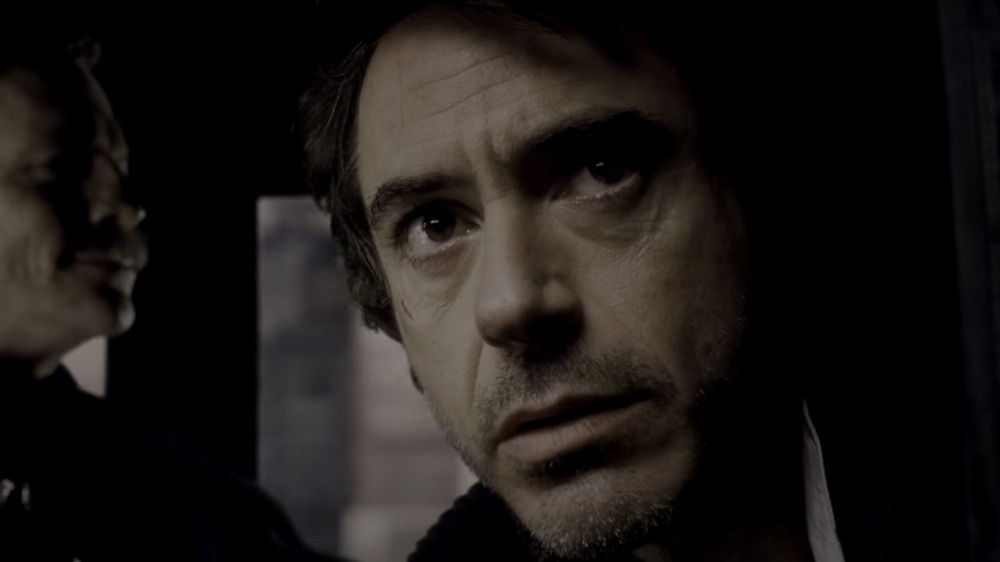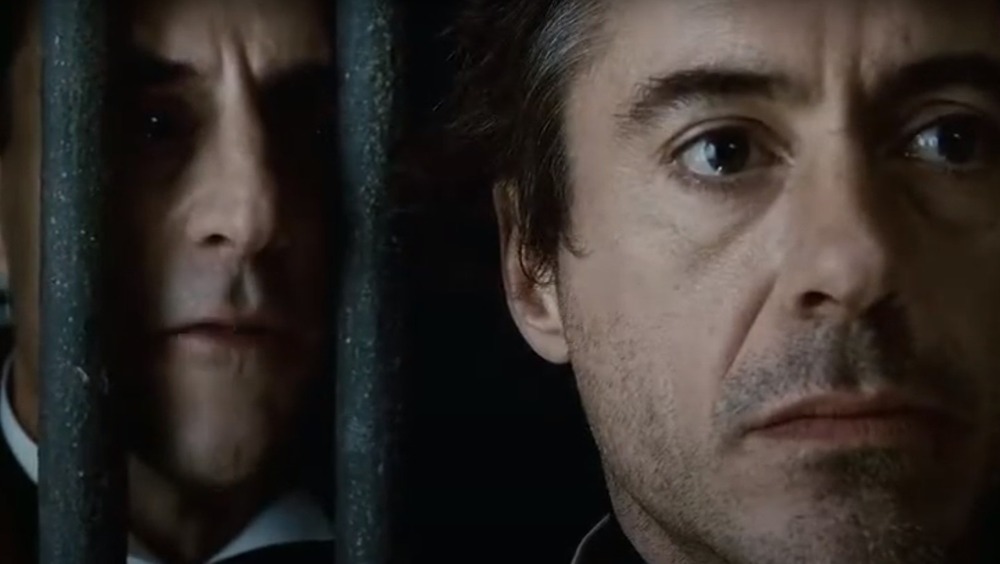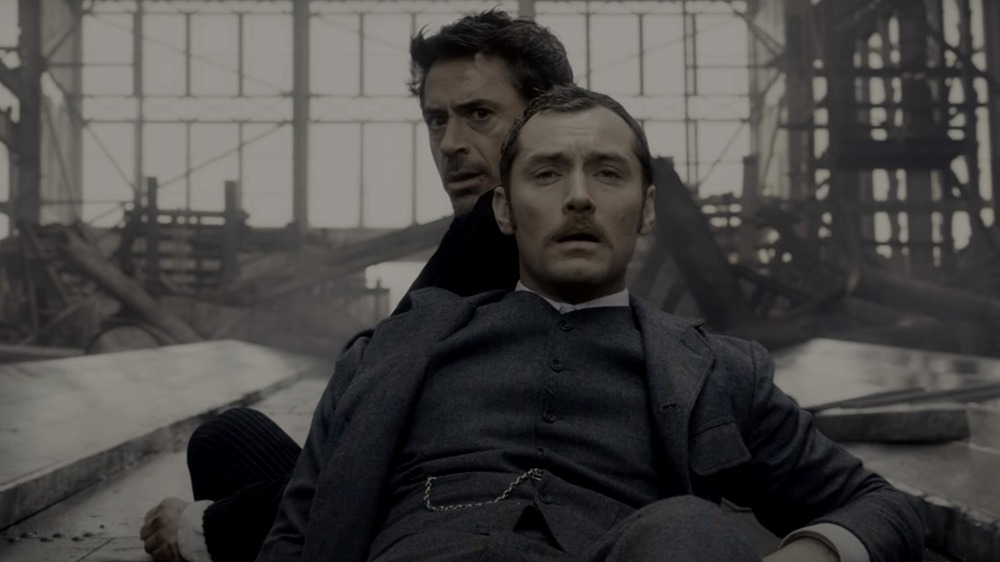The Ending Of Sherlock Holmes Explained
2009 was a pretty sweet time to be Robert Downey Jr., professionally speaking. He was Hollywood's new Cinderella story, busting blocks with his performance as Iron Man the previous year and, in the wake of legal troubles in the '90s and early 2000s, he was riding a delicate edge, equal parts captivating performer and fishtailing human race car that could careen into a wall at any second.
Sherlock Holmes managed to latch onto all of these aspects and turned a character that debuted over a hundred years prior into one of the biggest box office draws of the year. It didn't hurt that the Guy Ritchie film took a very comic-book-movie approach to the story, employing elements of the source material into a fresh story in order to give audiences a new adventure in a familiar world.
There's a dusting of The Hound of the Baskervilles on 2009's Sherlock Holmes – a seemingly supernatural force brought against an unsuspecting public. Where the film skews, however, is in its hesitancy to show the hero of a proposed Hollywood franchise shooting a dog to death. Instead, the writers elected to bring in a new villain, occultist Lord Henry Blackwood, played by Mark Strong, an actor who specializes in portraying the opposite of dogs that you'd rather not see get shot.
Sherlock Holmes pits superstition against stimulants
Throughout the film, Victorian London is terrorized by Blackwood, an apparent master of the supernatural who, after a very public hanging, appears to rise from the grave. It's a black eye for both Holmes and, more importantly, Doctor Watson (Jude Law), who declared the cultist dead in the first place.
It's all just a hint of what's to come. Blackwood is continually surrounded by seemingly inexplicable deaths. His enemies burst into flames or drown mysteriously in their bathtubs. It's all presented weirdly enough that the viewer starts to wonder if there really is something unnatural afoot. Classic mystery stuff.
In the end, of course, the impossible is eliminated, and what remains, however improbable, is true: Blackwood was a clever clogs, but he never had any mastery of the occult. His return from the grave came courtesy of bribes and planning ahead, not miraculous reanimation. All of his murders were carefully calculated scientific acts, 100% magic-free. In a final confrontation, theatricality gets beaten out by reality, and all of the acclaimed warlock's perceived abilities can't save him from dying, poetically enough, when he falls off of a bridge, gets tangled in some ropes, and hangs. No, for real this time.
It's also important to mention that the film's final moments set things up for an even more severe showdown in future installments. Professor James Moriarty, a criminal mastermind with an enigmatic toe in the movie's events, has made off with some futuristic whosit called a "radio." It's about to get bananas up in 221B Baker Street.
Far from Holmes?
There's an argument to be made that Sir Arthur Conan Doyle, the creator of Sherlock Holmes, would have hated Guy Ritchie's 2009 adaptation of his character. It's not just because he might have struggled to collect a licensing fee, either.
Doyle had a history of dismissing his most famous creation, at one point calling Holmes a distraction that "takes my mind off better things." More than that, though, the author and unsuccessful physician developed an abiding interest in spiritualism during the late 19th century, dropping metric tons of cash on psychics and mediums. He joined secret societies and supernatural enthusiast's organizations, then resigned when they couldn't keep up with his weirdness. He traveled the world, searching for proof of stuff beyond the tangible and, as a result, found himself at the business end of famous cons like the Cottingley Fairies. Doyle's friend Harry Houdini went so far as to set up a series of psychic fake-outs and then pull back the veil on his illusions with the express intention of showing his pal that the whole thing was malarky. Doyle's reaction: he thought Houdini was definitely psychic. In short, there's a chance that Doyle might very well have been all about Team Blackwood — however unlikely.


